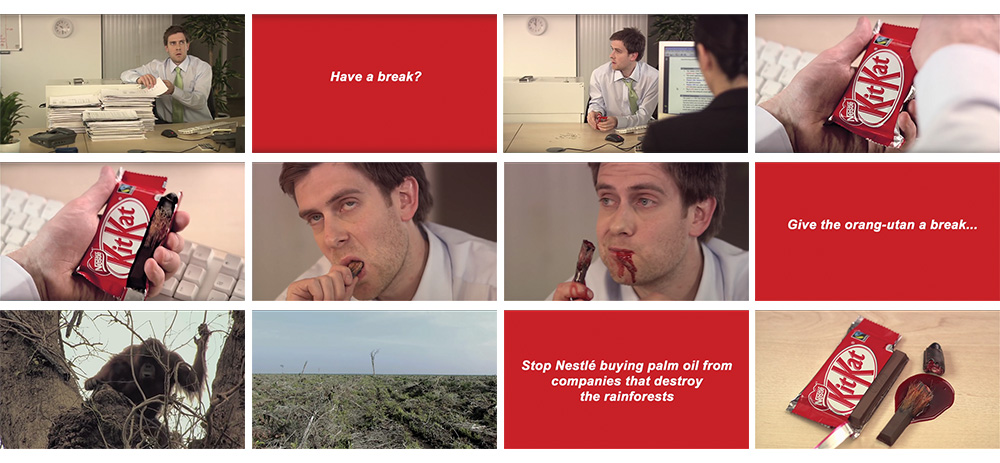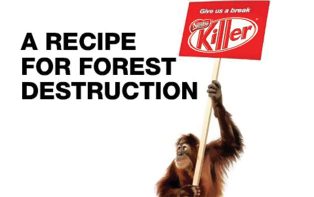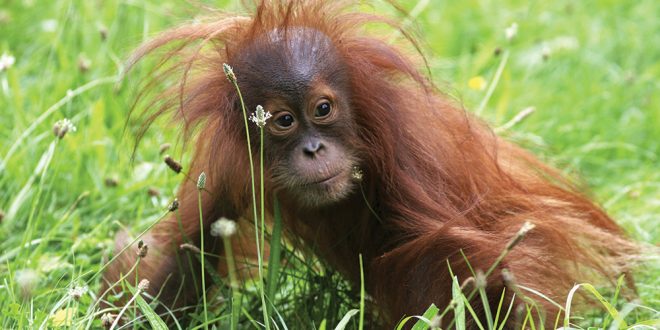The apes are dying out. Until now, large areas of the rain forest in Sumatra and Borneo – where the vegetation grows on wet peatland – were being further deforested to make way for agricultural palm oil plantations. Through arson, the now dried-out peat and the methane stored in it caught fire.
For more than three months, fire fighters and the military tried to put out the fires. In vain. Stinging clouds of smoke covered large parts of Indonesia and Malaysia. Schools were closed. The normal day-to-day life of the people living there became impossible. Even with smoke masks on their faces, people still couldn’t breathe enough.

No gas masks were handed out to our closest relatives in the animal world, the red-haired persons of the forest. The trees were chopped down around them, they were hunted, shot and sold as a delicacy on the markets. Just on account of palm oil?
It is not only the orangutans of our earth that are endangered. The gibbons (China, Thailand), lemurs (Madagascar), chimpanzees (Tanzania and West Africa), langurs (Vietnam), gorillas (Congo) and many other ape species are facing a gigantic genocide.

Industrial agriculture in conjunction with the multinational consumer goods industry and the heedless shopping of consumers contribute to the widespread dying out of the apes.
Orangutans are tree dwellers. The wood is their habitat. They feed on fruits and seeds.
With the title picture, we remind you of our closest relatives.
 Eco123 Revista da Economia e Ecologia
Eco123 Revista da Economia e Ecologia


